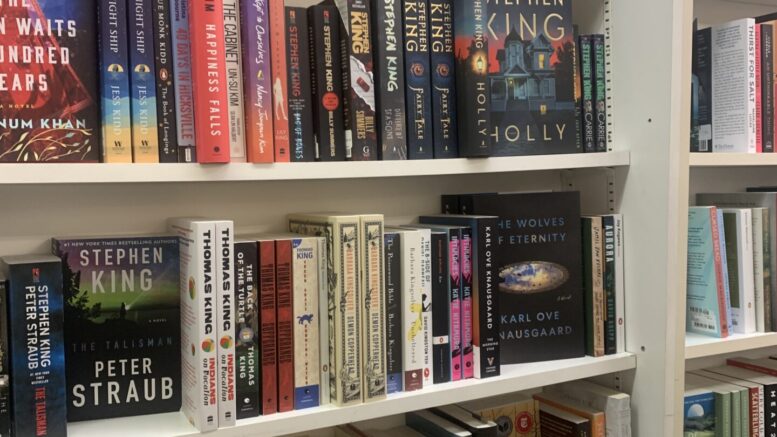Reading fiction can help people’s mental health by providing them with a break from daily life, a Toronto therapist says.
“Fiction can give us an opportunity to escape in a healthy way, for a distraction, to see stories unfold to build help or to give ideas on how to navigate and inspire,” said Anna Donaldson, a registered psychotherapist at Advance Health.
Reading has always been a way for people to press pause on their own life and to become someone else. Books can be relatable and address worldwide issues head on. And reading has become a form of therapy, bibliotherapy to be exact.
Bibliotherapy uses books and other media forms to facilitate both normal development and clinically significant problems, such as depression.
“Depression is our body’s way of trying to navigate through something very difficult and it’s a way that our emotions shut down as a response to overwhelm,” Donaldson said.
Reading alone has been shown to improve brain connectivity and improve vocabulary and comprehension. It allows one to empathize with others better, aids in sleep readiness and reduces stress.
Self-help books can be beneficial as they can teach strategies that can help manage symptoms associated with depression, however, self help books aren’t the only genre people can benefit from. Fiction is also beneficial, Donaldson said.
Bibliotherapy can help to lessen feelings of isolation that depression causes, and is 23 per cent more likely to help a person live longer. It can also be beneficial to physical health by lowering blood pressure and heart rate.
How does bibliotherapy work?
Read To Connect is a non-profit organization that offers creative bibliotherapy sessions to groups and individuals in Toronto.
“Bibliotherapy, also known as book therapy, is suitable for all age groups who are going through a difficult transition in life or who are facing physical or emotional challenges,” their website states. “The bibliotherapist conducts read-aloud sessions targeting the needs of the group through specifically selected readings followed by a guided discussion.”
Bibliotherapy is useful as a coping mechanism as it’s therapeutic, calming and boosts self esteem. It helps people who have recently suffered a loss and it is a great way to cope with grief. It should be noted, however, that bibliotherapy is not and should not be used as an antidepressant.
A local bookstore employee told the Toronto Observer that reading helps broaden her perspective.
“I read because I love it,” said Simone Lehmann, an employee at Book City on Danforth Avenue. “It helps me to learn new things and it helps me to experience things I might not otherwise experience, different ways of living, different parts of the world and different times in history.”
Audiobooks are increasingly becoming popular. Lehmann said they are significant they are for her dad.
“I like audiobooks. My dad is losing his eyesight, so audiobooks have been really nice for him. It’s a way he can read without having to see.”
According to a study, within just three months, 54 per cent of people partaking in bibliotherapy have reported an improvement with their physical and mental health.
“Reading generally improves my mood,” said Lehmann.
For any mental health emergencies, book an appointment with CBT Associates, get in contact with Good2Talk, contact your doctor, go to the nearest hospital, call 911 or Telehealth Ontario at 1-866-797-0000.


